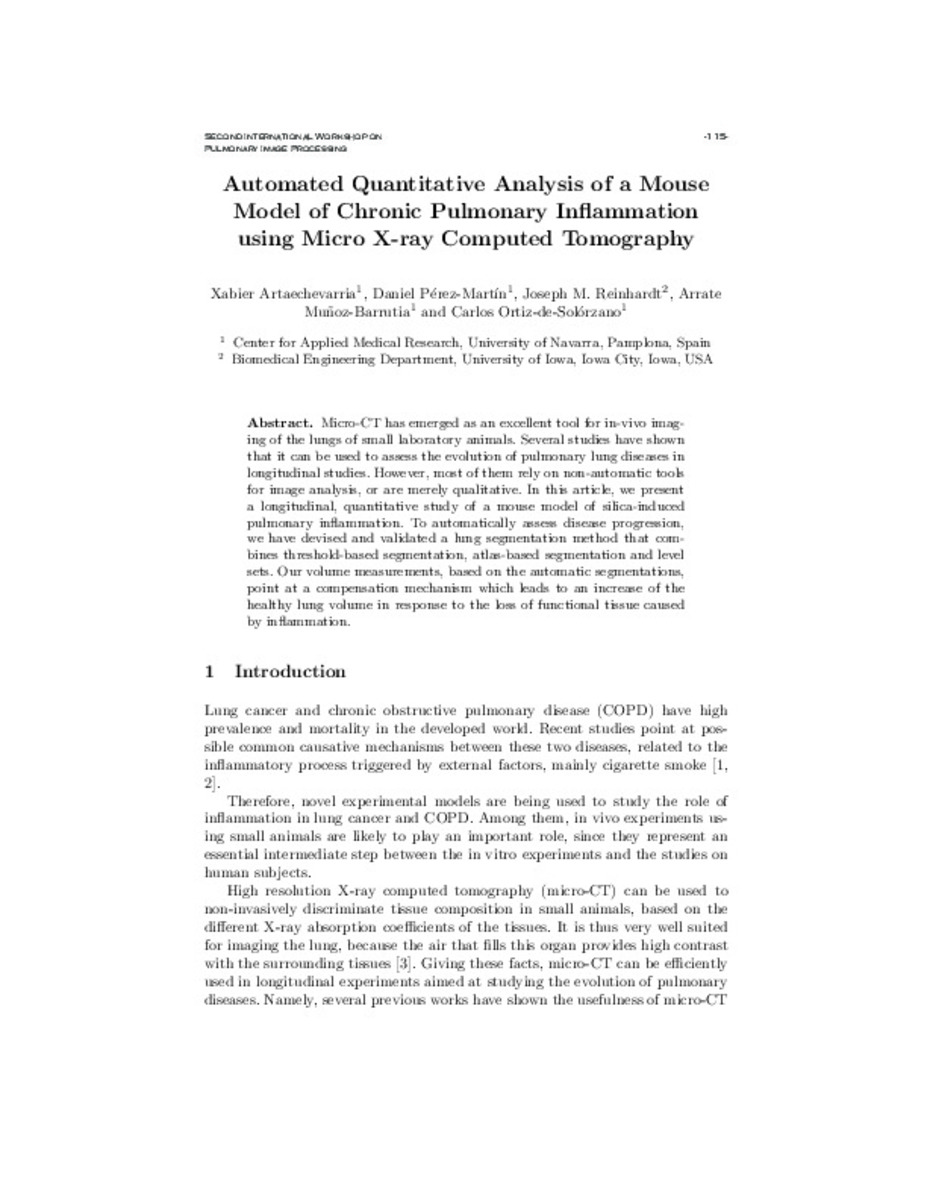Full metadata record
| DC Field | Value | Language |
|---|---|---|
| dc.creator | Artaechevarria-Artieda, X. (Xabier) | |
| dc.creator | Perez-Martin, D. (Daniel) | |
| dc.creator | Reinhardt, J.M. (Joseph M.) | |
| dc.creator | Muñoz-Barrutia, A. (Arrate) | |
| dc.creator | Ortiz-de-Solorzano, C. (Carlos) | |
| dc.date.accessioned | 2011-05-02 | - |
| dc.date.available | 2011-05-02 | - |
| dc.date.issued | 2011-05-02 | - |
| dc.identifier.uri | https://hdl.handle.net/10171/17853 | - |
| dc.description.abstract | Micro-CT has emerged as an excellent tool for in-vivo imaging of the lungs of small laboratory animals. Several studies have shown that it can be used to assess the evolution of pulmonary lung diseases in longitudinal studies. However, most of them rely on non-automatic tools for image analysis, or are merely qualitative. In this article, we present a longitudinal, quantitative study of a mouse model of silica-induced pulmonary inflammation. To automatically assess disease progression, we have devised and validated a lung segmentation method that combines threshold-based segmentation, atlas-based segmentation and level sets. Our volume measurements, based on the automatic segmentations, point at a compensation mechanism which leads to an increase of the healthy lung volume in response to the loss of functional tissue caused by inflammation. | es_ES |
| dc.language.iso | eng | es_ES |
| dc.rights | info:eu-repo/semantics/openAccess | es_ES |
| dc.subject | Tomography | es_ES |
| dc.subject | Lung neoplasm | es_ES |
| dc.subject | Lung diseases | es_ES |
| dc.title | Automated Quantitative Analysis of a Mouse Model of Chronic Pulmonary Inflammation using Micro X-ray Computed Tomography | es_ES |
| dc.type | info:eu-repo/semantics/other | es_ES |
| dc.relation.publisherversion | http://citeseerx.ist.psu.edu/viewdoc/summary?doi=10.1.1.148.5532 | es_ES |
Files in This Item:
Statistics and impact
Items in Dadun are protected by copyright, with all rights reserved, unless otherwise indicated.






